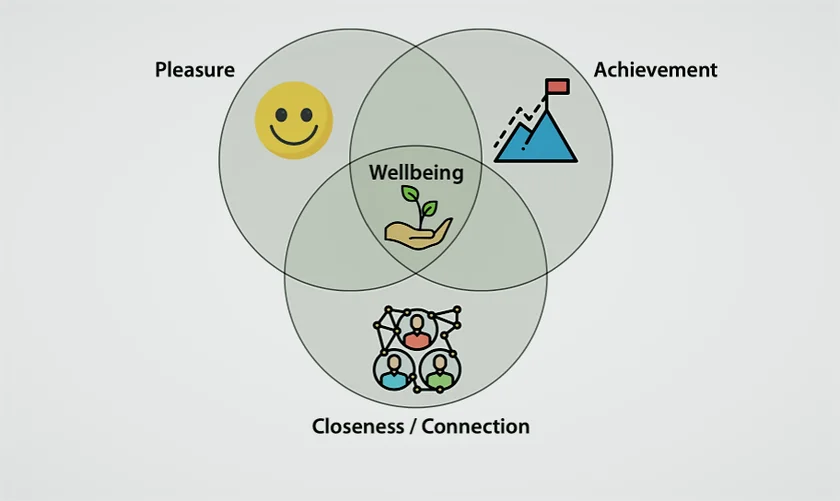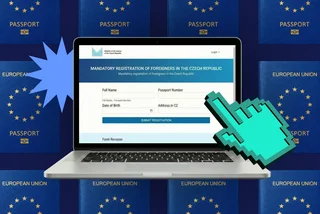This article was written in cooperation with Prague English Psychology Services s.r.o.. Read more about our partner content policies here.
Even with the milder temperatures we’ve had this year, January remains a dark, boring, and generally depressing month. The parties are over, the Christmas lights and markets are gone, and no more svařák until next year! It’s back to work, with nothing to look forward to but the long, slow slog to spring.
Are you having a hard time getting out of bed on these dark mornings? Lingering longer than you should over that second (or maybe fourth) cup of coffee? Feel like hiding at home and turning off your notifications? Maybe you’ve got the winter blues.
You’ve probably heard of the usual remedies — exposure to sunlight, getting some exercise, reducing your alcohol intake, and trying to maintain a healthy diet. But there’s more you can do to chase the blues (winter or otherwise) away, using some of the simple principles of modern Cognitive Behavioral Therapy (CBT). Note that while these tips should help lift your spirits if you are feeling so down that you think you might hurt yourself, seek medical help.
What is CBT?
CBT works on the principle that your mood and emotions are, to a substantial degree, a product of your thoughts, beliefs, and actions. Sometimes we hold thoughts and beliefs about ourselves and the world that are not really correct, but remain unexamined, and can drive us to despair, and when we’re feeling down, we can lose track of our ability to exercise agency in our lives.
When we’re in a slump, we just don’t have the energy to take even small steps that might improve our situation. A qualified CBT therapist will help you deconstruct and reframe those negative thoughts and underlying maybe-not-so-helpful beliefs, and help you identify and make systematic (if at first maybe gradual) action-oriented steps that get you connected to a life worth living.
Taking any sort of action can feel impossible when we’re in a slump, and it’s easy to fall into a pattern of inactivity. When our energy is low and we tend to withdraw from friends, stop trying new things, and stay home staring at screens. This only drives our mood slower, and a kind of vicious cycle develops. Feel bad/don’t feel like doing much/don’t do much of anything/feel worse. Does it sound familiar?
A qualified CBT therapist can help you break “the winter blues doom spiral,” but there are some simple steps that you can take all on your own to improve your mood by addressing three key areas: Experiences of Pleasure, Achievement, and Connection.
Pleasure
Embrace the simple fact that experiences of Pleasure are an essential part of life. Go ice skating, take a short hike, visit a gallery. Invite some friends over to play cards or a board game. Make a short list of purely fun activities that you enjoyed in the past or would like to do in the future, and then make a plan to do some of them. Write your ideas down, then pick up the phone. Even if you don’t feel like it, doing these things will almost certainly improve your mood.
Closeness
Fight social isolation and create experiences of Closeness or Connection by getting together with someone that you like, but didn’t see over the holidays. Or arrange to meet a friend you did see recently, and would like to see again for coffee or dinner. Tell them you've “got the winter blues” and need to spend quality time with people. Maybe they feel the same way! You’ll probably notice that just having something pleasant to look forward to gives your mood a little lift.
Achievement
Ask yourself what you’d be doing if you weren’t feeling so down. Would you be spending a little time improving your Czech? Would you be making art, or writing? Or developing some other skill that you just aren’t up to working on these days? You will be surprised how even the smallest Achievement-oriented step can impact your mood. Even a few minutes with DuoLingo or a sketchpad will feel good. You’ll feel even better when you do it on a consistent schedule. Give yourself bonus points for doing it with a friend.
Your goals do not need to be big, and your achievements can be merely incremental. But you will almost certainly find that taking some (even small) action toward improving the quantity and balance of your experiences of Pleasure, Achievement, and Connection will make a difference.
Steven J. Hughes, PhD, LP. ABPdN, is a clinical psychologist trained in the US and Canada, who has over 25 years of experience. He is licensed to practice psychology in Minnesota and in the Czech Republic.












 Reading time: 4 minutes
Reading time: 4 minutes 























